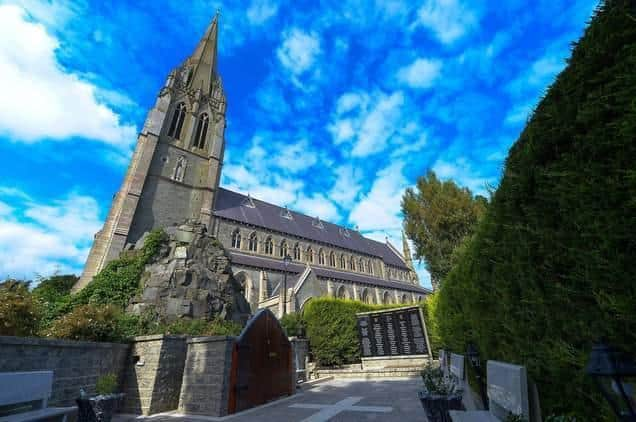Catholic report finds appetite for women and married priests and inclusion for gay community
and live on Freeview channel 276
'Synthesis of the Consultation in Ireland for the Diocesan Stage of the Universal Synod 2021 – 2023', a report on a series of local listening engagements that took place in dioceses and other contexts all over the country between October 2021 and May 2022, was published this week.
The publication, the Church said, marks a significant milestone in a synodal process currently underway in the Catholic Church in Ireland.
Advertisement
Hide AdAdvertisement
Hide AdAmong its findings are that there should be a greater role for women in the Church in Ireland, including that there should be female priests.


"Several of the submissions called for the ordination of women to the permanent diaconate and the priesthood. Their exclusion from the diaconate is regarded as particularly hurtful. Some women felt that yet another layer was added to exclude them.
"Many young people cannot understand the Church’s position on women. Because of the disconnect between the Church’s view of women and the role of women in wider society today, the Church is perceived as patriarchal and by some, as misogynistic," the document states.
The report also noted an appetite among some Catholics for an end to celibacy.
Advertisement
Hide AdAdvertisement
Hide AdIt observes: "There were calls from both young and older participants for optional celibacy, married priests, female priests, and the return of those who had left the priesthood to marry. Clericalism in all its forms was frequently associated with hurt and abuse of power by participants in the process.
"Some declared that the structures of the Church are not inclusive but patriarchal, hierarchical, and feudal. There was concern expressed that many priests are resistant to change; that they feel they don’t have anything further to learn and view the local parish as ‘my parish’ not ‘our parish’."
Equally, there were calls for a more inclusive Church for gay people.
Advertisement
Hide AdAdvertisement
Hide Ad"There was a clear, overwhelming call for the full inclusion of LGBTQI+ people in the Church, expressed by all ages and particularly by the young and by members of the LGBTQI+ community themselves.
"This inclusion would in the first instance involve less judgemental language in Church teaching, following the compassionate approach of Pope Francis which has been transformative and is appreciated, again, by young people in particular," the synthesis states.
An LGBTQI+ focus group called for an apology from the Church.
"This submission suggested that even though the Church rarely condemns gay people these days, it indirectly creates an atmosphere where physical, psychological and emotional abuse of gay people is tolerated and even encouraged.
Advertisement
Hide AdAdvertisement
Hide Ad"Indeed, the visceral clarity of this particular focus group gave life to the rather more tentative and generalised positions on inclusion offered elsewhere, pointing to the value of hearing directly the voices of the excluded or disaffected," the report adds.
The consultation found that the degree of 'physical, sexual and emotional abuse' and 'its concealment by the Church in Ireland' was an ‘open wound’.
"This experience affects victims/survivors and their families at every level of their being, including their soul. The submissions relate and link this abuse to so many other areas – our understanding of sexuality and of power; the absence of women in decision making roles; transparency and accountability in governance; clericalism.
"The Church is invited to interrogate how its own structures and modus operandi contributed to this crisis. In this sense it is a lens through which all else needs to be viewed. The scale of abuse within the Church has created a huge sense of loss which infused the responses in our consultation," it states.
Advertisement
Hide AdAdvertisement
Hide AdThe survey heard from some participants that the Church is now 'pushed to the margins of popular culture which it struggles to understand or to find language with which to be understood'.
"The submissions highlight the morale-sapping effect of negative media treatment of the Church, while recognising the invaluable service of independent media in exposing abuse and failures of accountability within the Church," the document maintains.
The synthesis document notes that a number of important societal issues were rarely mentioned in the conversations. These included the environment and social justice.
"Despite the Church’s concern for the care of our common home, the main submission regarding environmental issues came from the Laudato Si’ Working Group with only nominal mention across the diocesan syntheses," the report notes.
Advertisement
Hide AdAdvertisement
Hide AdAnd on issues like equality and poverty: "It was recognised that the Church has a life-giving vision for the world in its social teaching and that the Church has the potential to be a force for the common good in our society while acknowledging the impact of organisations such as the Society of Saint Vincent de Paul and Trócaire.
"It is noteworthy that although Irish society is preoccupied with issues surrounding social justice, for example, homelessness, immigration, poverty, housing etc., the synodal conversations only occasionally drew out reflection and comment on these issues.
"When spoken of, there was a sense that the Church needed to re-orientate itself to the genuine hardships that people face and to be attentive to the social difficulties that exist in Northern Ireland as a result of the legacy of the troubles."
Advertisement
Hide AdAdvertisement
Hide AdDr. Nichola Brady, Chair of the Steering Committee for the Irish Synodal Pathway, said: “The strong sense of shared responsibility that has guided our synodal process so far, from the local to the national level, has been a great encouragement.
"It is hoped that this will continue to to motivate us to develop our skills of deep listening and discernment, as we reflect on the significance of our national synthesis, and the different voices of the church around the world, asking what God wants of us in light of what we have heard.”
